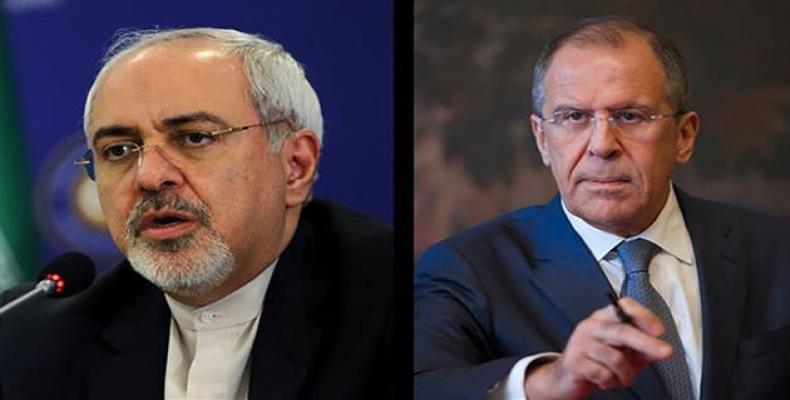Tehran, April 29 (RHC)-- The top Iranian and Russian diplomats have dismissed a plot by their U.S. counterpart to press for the extension of a UN arms embargo against the Islamic Republic by resorting to a process outlined in a 2015 nuclear agreement that Washington has already abandoned.
In a phone conversation on Tuesday, Foreign Minister Mohammad Javad Zarif of Iran and his Russian counterpart, Sergei Lavrov, slammed U.S. Secretary of State Mike Pompeo’s most recent anti-Iran scheme as “delusional” and “impractical,” IRNA reported.
The two ministers were reacting to a report by The New York Times on Monday that Pompeo plans to invoke a provision in the UN-endorsed nuclear agreement, which Washington left in 2018, in an attempt to either extend beyond October the UN arms embargo in place against Iran since 2006/2007 or get the world body to slap even harsher sanctions on the Islamic Republic.
The Fox News Channel said on Monday that “this plan would give the U.S. standing at the United Nations Security Council to push to extend the arms embargo on Iran expiring in October, and restore sanctions for Iran’s violations of the deal.”
The United States, however, is likely to face a harsh battle at the UN Security Council, where veto-wielders Russia and China are expected to oppose the arms embargo. The Times report said Pompeo’s bid would likely be challenged by many of Washington’s European allies as well simply because America is no longer a party to the deal — officially named the Joint Comprehensive Plan of Action.
In their earlier reactions to the report, Zarif and Russian officials reminded the US that it was no longer considered a signatory to the Iran deal.
Elsewhere in the phone conversation, Zarif and Lavrov exchanged views on other issues of regional and international significance, including the Afghan peace process and a coronavirus pandemic plaguing the world community.
In turn, the Russian Foreign Ministry also issued a statement carried by the TASS news agency, saying the two ministers had exchanged views on ways to bolster cooperation on the fight against the virus spread, among other topics. “They thoroughly discussed pressing global issues, focusing on developments in Afghanistan and the situation surrounding the Joint Comprehensive Plan of Action for Iran’s nuclear program,” the ministry further said.
In a phone call earlier this month, Iranian President Hassan Rouhani and his Russian counterpart, Vladimir Putin, had stressed the need for closer Tehran-Moscow cooperation in efforts to rein in the deadly virus.


